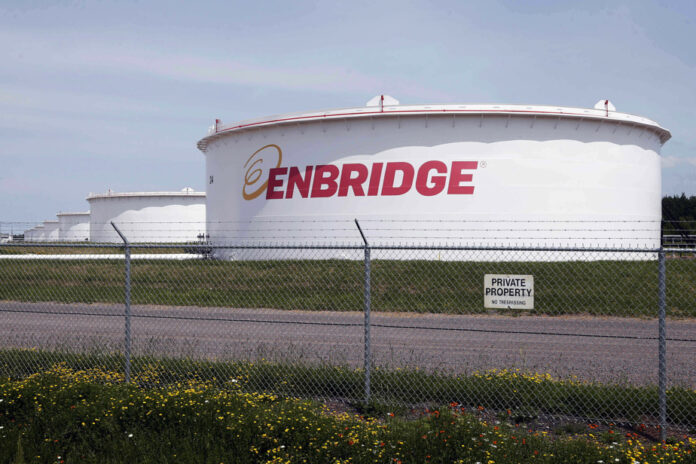(Calgary) Enbridge’s CEO is calling for the creation of a federal loan guarantee program to help Canada’s First Nations communities acquire stakes in major resource and infrastructure projects.
In an interview Friday on the sidelines of delivering a speech to the Toronto Area Chamber of Commerce, Greg Ebel explained that Canadian energy companies are increasingly willing to offer equity stakes to Indigenous communities including traditional lands are crossed by pipelines and other infrastructure projects.
But he added that indigenous communities often lacked the necessary access to capital. Although Alberta, Saskatchewan and Ontario all have programs providing funding to Indigenous communities for business partnerships, Ebel believes a pan-Canadian solution is needed.
“The problem is that a lot of our infrastructure in this country crosses jurisdictions, it crosses borders. So we need a national program,” he said.
“It is difficult for a province to offer loan guarantees for the benefit of people who live in another province. »
Although private companies have worked with indigenous communities on infrastructure projects for decades, early agreements typically included construction job guarantees or other financial benefits for the community, but failed to achieve provide indigenous peoples with full equity participation.
This is however changing. Last fall, Enbridge signed what was at the time the largest energy partnership in North America between a private company and indigenous people. The deal saw the Calgary company sell an 11.57% stake in seven northern Alberta pipelines to 23 First Nations and Métis communities – a $1.1 billion deal backed by a loan guarantee in 250 million shares of the Alberta Indigenous Opportunities Corporation.
Several Indigenous-led groups have also expressed interest in purchasing a stake in the Trans Mountain pipeline, which is currently owned by the federal government.
Additionally, Indigenous communities have invested heavily in wind, solar and other clean energy projects. The non-profit Indigenous Clean Energy Social Enterprise recently estimated that Indigenous communities own, co-own, or have a defined financial benefit agreement for almost 20% of Canada’s electricity generation infrastructure.















